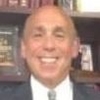Welcome to BARBRI, the trusted global leader in legal education. Continue to access the same expert-led Strafford CLE and CPE webinars you know and value. Plus, explore professional skills courses and more.
About the Course
Introduction
This CLE course will discuss the trend in some jurisdictions to admit statements of outside counsel as admissions against their clients under Federal Rule of Evidence 801(d)(2).
Description
Statements of opposing parties made in or out of court are admissions not hearsay and, thus admissible evidence. Federal Rule of Evidence 801(d)(2) provides that the same rule applies to statements of the opposing party's agents, so long as the statements are within the scope of the agency and are relevant to the matter at hand.
An attorney is the client's agent, so clients often suffer the consequences of their attorney's blunders because the actions of its agent bind the client. In the context of an attorney's statements, some rulings have applied FRE 801(d)(2) to admit counsel's statements against the client to prove part of a claim or defense, even in criminal cases.
Listen as the panel explores how these agent-admissions happen in both civil and criminal matters, the consequences, and what topics create the most risk.
Presented By

Mr. Bachner concentrates his practice on white collar criminal defense and securities litigation. Before entering private practice in 1988, hel served as an Assistant District Attorney in the Rackets Bureau of the Manhattan District Attorney's Office and as an Associate Vice President and Assistant General Counsel for Prudential Securities.

Mr. Jenks is a trial lawyer whose practice has included a significant amount of noteworthy products liability work. He played an integral role defending a drug manufacturer after the most highly publicized drug recall in history. He also played a key role on the Texas team defending a tire manufacturer after the most famous recall in that industry. His practice has also included noteworthy cases in trademark infringement and construction defect law.

Mr. Tomasik handles large and high-profile cases for the firm in the areas of aviation litigation, commercial aviation liability, construction liability, medical devices and pharmaceutical litigation, personal injury, premises liability, product liability, and transportation liability.
-
This 90-minute webinar is eligible in most states for 1.5 CLE credits.
-
Live Online
On Demand
Date + Time
- event
Tuesday, June 9, 2020
- schedule
1:00 p.m. ET./10:00 a.m. PT
- Is the counsel an agent?
- Was the statement made during the existence of the agency?
- Does the statement concern a matter within the scope of the agency?
- Must the declarant have personal knowledge?
- When can such statements be used in criminal proceedings?
The panel will review these and other noteworthy issues:
- How FRE 802(d)(2) works for agents
- When can such statements be used in criminal proceedings
- What counsel can and cannot do to prevent his/her statements to harm a client's case
- Best practices to avoid statements as being deemed admissions
Unlimited access to premium CLE courses:
- Annual access
- Available live and on-demand
- Best for attorneys and legal professionals
Unlimited access to premium CPE courses.:
- Annual access
- Available live and on-demand
- Best for CPAs and tax professionals
Unlimited access to premium CLE, CPE, Professional Skills and Practice-Ready courses.:
- Annual access
- Available live and on-demand
- Best for legal, accounting, and tax professionals
Unlimited access to Professional Skills and Practice-Ready courses:
- Annual access
- Available on-demand
- Best for new attorneys
Related Courses
Recommended Resources

Explore the Advantages of Consistent Legal Language
- Learning & Development
- Business & Professional Skills
- Talent Development



